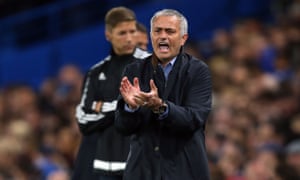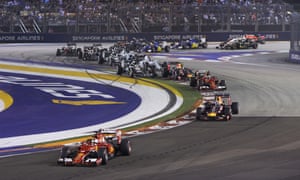Maurice Mcleod: Triple jump – as valid as the egg-and-spoon race

By the usual measures of sweat, skill and athleticism, the triple jump belongs in the sporting arena. The event has been part of the Olympic Games since they resumed in 1896 and we even have a British world record holder: Jonathan Edwards’ 18.29m record has stood since 1995.
While the triple jump and those who practise are undoubtedly sporting, it shouldn’t really be considered a sport. It’s far too contrived.
Take off on one foot, land on the same one, then take off again but this time land on the other foot before taking off for a third time and landing on both feet. Let’s be honest, that’s nonsense isn’t it?
Real sports should be unique and simple enough to test skills which are not tested elsewhere. If a hop, a skip and a jump is a sport you may as well make a spin, a shimmy and a forward roll a sport or introduce the egg-and-spoon race to international competition.
At school I was hopeless at sport but unerringly keen. There was not much point in me competing at any real events like long jump or sprinting, so I took up triple jump. With all due respect to the Jonathan Edwards of this world, if I can do triple jump then it should be immediately retired as a serious sport to make more room for proper events.
Joel Golby: Lifesaving – jumping into pools in pyjamas

In secondary school there was a day when we were all told to bring our pyjamas for the ritual humiliation of diving into a swimming pool in Captain Planet top and bottoms to retrieve a brick from the deep end. At the time I assumed that this was some particular niche fetish that my PE teacher was using his allowed-to-wear-tracksuits-in-classes power to indulge. I know now that I was playing a sport.
Lifesaving, as in the act of saving human lives, is officially a sport. Competitive lifesaving. It’s mainly a medley of events designed to give trained lifeguards something to do beyond sitting on a tall chair and telling people not to hit each other with pool noodles: obstacle swims, mannequin carries, precisely throwing and tugging on rescue ropes.
In a way, lifesaving is the gnarliest sport there is. The losers are more likely to kill with their failure. Each second they dawdle over a brick at the base of a swimming pool is someone’s life slowly seeping away from them. Everyone who comes second or below in a lifesaving event has metaphorical blood on their hands.
No other lifesaving discipline requires such sportsmanship. Until I see a team of St John Ambulance volunteers competitively pumping on a lung dummy, or a five-strong squad of surgeons rapidly peeling a melon with a scalpel, or mountain rescue helicopters jousting in the skies over the sharp and brutal rocks below, lifesaving should not be a sport.
Bidisha: Football – might as well just go to my nightclub

A sport should have mystery to it. Like angling. All the action happens underwater, a lot seems to depend on nature, and at the end you get a fish. It’s like the enigmatic haiku of the sporting world.
The activity I’ve never understood as being a “sport” is football. It is a game which has made the English world famous – not for athleticism, but rather for the philistinism of their hooligan fans. I’m not sure the cultural exportation of male yob violence is something to be proud of.
Then there’s the untrue message that anyone can do it (except females most of the time), it democratically brings people together (to shout abuse at each other) and if you can manage a pre-pub kickabout in the park, you’re somehow part of the legendary game.

If I wanted to find myself standing like a groupie at the edge of a gang of narcissistic, grotesquely overpaid and morally dubious males chasing each other up and down a field, competing in a rigged system so bent that it’ll take 20 years to cut out the rot, run by a network of dodgy international industry overlords, cut through with homoerotic lust for the Euro-chic hotness of José Mourinho, the Yanis Varoufakis of football, I’d go to my local nightclub.
Barney Ronay: Formula One – computers v other computers

There are many reasons to snipe at Formula One’s status as a mainstream sport. It remains a dizzyingly high-entry pursuit, essentially a very exclusive, very loud, travelling party for the world’s yacht-dwelling elite. Not to mention being run and peopled by the kind of uber-citizens who seem less appealing with every passing year.
On the track, and despite some recent rule changes, it is still some way off the test of bravery, skill and on-the-hoof mechanical ingenuity it may have been in its 20th century heyday, reduced to a hugely refined engineering challenge facilitated by some very talented cockpit stars.

The real problem now is technology. Already some projections suggest that wealthy parts of the world may be moving towards driverless cars within five to 10 years.
Just think how funny and quaint Formula One is going to look if it insists on keeping a driver in there. Look! Look at the funny man moving his “steering wheel” and pressing his pedals! Possibly even before the Qatar 2022 Fifa World Cup rolls around, manned Formula One cars could already have become the sporting equivalent of the landline or the fax machine.
No doubt the industry will try to resist and “keep it real”, but the fact that no human could ever seriously hope to defeat a highly advanced computer racing machine seems to fatally undermine the whole process. And F1 without drivers, courage, judgment, sex, cool and all the trappings of the human personality is, frankly, an empty cockpit.
Nell Frizzell: Judo – what happens when a child wants revenge

Once, on a dark night in a foot-smelling leisure centre somewhere behind Abingdon Bridge, I beat seven shades of sweaty tears out of a boy and called it judo. In my defence – as he had none – I was wearing a white polycotton bathing robe from a market stall at the time, so had at least made the effort to look the part.
Michael was one of the meanest pupils in the class my mother taught. For reasons of professional legality, if not honourable intention, mum was unable to smack Michael against the floor mat like an unformed pizza base, so it was up to me to call on my negligible experience of martial arts and do the job for her.
Any sport that can be enacted by a spherical 11-year-old girl purely as an act of revenge is, clearly, not a sport. There is nothing sporting about whaling into a person’s body fat like a spade. There was absolutely no technical aspect to my grabbing, heaving and, ultimately, crunching into poor, delinquent Michael. I didn’t even break a sweat – surely the base measure of any codified form of exercise.
My mum, however, broke into tears. Whether of joy or remorse, I’ll leave it for history to decide.



